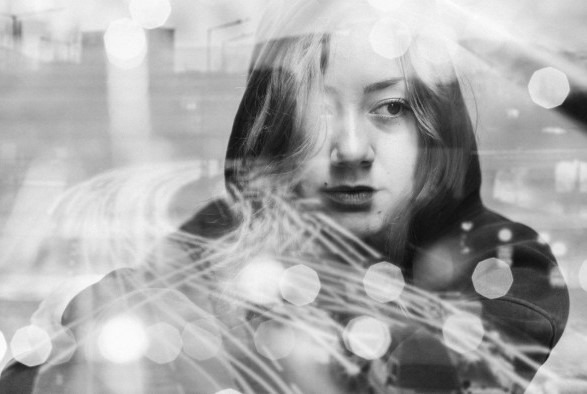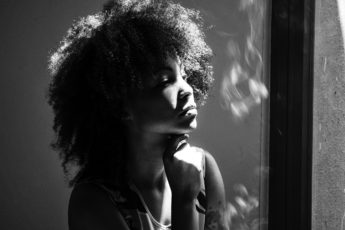By Nora Peters
Since discovering this blog a few months ago, I have tried, a few times, to organize my thoughts and write down my story. But when I have a PMDD episode, the words “organizing” and “thoughts” together in one sentence is absurd. Not possible. I’m angry about this and this and that and everything. And I am right, absolutely no doubt, everyone else is wrong and I am so angry about it. All my past imagined or real slights and abuses from the people in my life are stuck at the front of my brain, not to budge until I take a prescription or the 1.5-2 weeks has run its course. I am lucky in that, you ladies who are reading all know what I’m talking about! So here we go…
I am writing this while I am having a PMDD episode, I am day 3 of possibly 10-14. I feel compelled to share my story. I hope writing this will possibly help me heal a little and I hope, more than anything, that someone reading this will gain something positive from my story, identify with me, learn from my mistakes…
I did not get my PMDD diagnosis until I was 22. I often look back to when I was 17 and my PMDD manifested for the first time. Prior to that, I had been functioning well, terrible anxiety, but pretty great grades. At 17 years old, everything changed. I became angry and depressed, although I didn’t notice the timing of these episodes until much later. I thought I was just depressed. There is a known history of depression in my family so I thought- there ya go. Then it became more of a debilitating issue. I switched high schools. Very suddenly my A’s became F’s and I dropped out. I started drinking a lot, my first attempt at, unknowingly, treating my PMDD. The drinking had a detrimental effect on my health and I contracted a rare form of pneumonia. I spent 5 weeks in the hospital, 2 of those in a coma. After recovery, which was rough, I lost so much weight that I did not get my period for a few months, and had no PMDD insanity! I remember noticing this at the time; I only felt anxious, none of the anger. I finished high school. I became an Esthetician. The next 5 years were a blur of on and off drinking, anger and sadness, losing jobs, just having a really hard time coping with life.
Then I began having suicidal ideations, very erratic behavior and what I know now to be psychosis. I was hitting my head against the wall at my Mom’s house crying for hours, asking to die. I didn’t want to live the way I was forced to by my own body anymore. I had my first hospitalization for PMDD. I got my period day 4 of my stay.
I then tried to follow my school and career dreams, but again I was forced to stay home for days, sometimes weeks at a time. No job I have ever had is ok with that. So that became depressing as well. As you all probably know it is just very hard to remain employed when you are “not available” 2/4 weeks of the month. I was hospitalized again and yet again I got my period while in the hospital.
This was the point where I thought it had to be connected to my period. I searched and read what was available back then about Premenstrual Dysphoric Disorder. I contacted a woman at a clinic who seemed to know about this disorder I suspected I had. She confirmed to me that yes I sure do have PMDD. She explained the basics, what they knew then about it, and offered me Yaz which was a new birth control.
I then found myself a great psychiatrist, that is, after 4 other deplorable ones. I started taking Citalopram. Everything was honestly pretty ok, for a while. I held jobs longer than I had in my life. My ovulation time was not a debilitating event. I had a boyfriend for the first time in a long time.
Then Yaz seemed to stop working. My PMDD was back with a vengeance. Citalopram alone could not handle the madness that soon consumed half my life again. So I switched birth control to Seasonique: 4 periods a year. I was very excited until after the first scheduled period I started bleeding every month. And most importantly, not only was I bleeding every month when I wasn’t supposed to, at the end of the 3 months I had the mother of all PMDD episodes. It may help you, ladies, but it was not for me. My hormones refuse to be suppressed. But, I stuck with Seasonique, justifying it in that 4 absurdly detrimental PMDD episodes a year was better than 12.
In 2013, we got married, still the same thing going on, still wanting to do more physically, academically, career-wise, but completely unable to. I am only available half my life. I began to realize this and it was painful to think I may never be able to function more than 50% of the time. But on my better days, my attitude was, well what can I do with the 50% that is left?
After MUCH deliberation, my husband and I decided to have a baby. The only thing we talked over in a negative way was my PMDD. We didn’t know what to expect but knew we would be great parents and wanted that for our lives.
Pregnancy was the HAPPIEST I have ever been in my entire life. I’m not talking about excitement for bringing a new life into the world. I am saying I had ZERO PMDD type symptoms, which I suspect was due to the luteal phase not engaging. No depression. Very mild anxiety. I felt alive, carefree, truly happy. This confirmed PMDD is what I have, and it is absolutely physical, all hormones. Hormones that wreak havoc upon my psyche.
My daughter was born and it was, of course, the best day of mine, and my husband’s lives. But then came the Postpartum depression. I was ready for it, it was like a 3 month long PMDD episode but with more sadness than anger.
Unfortunately, I was diagnosed with Ulcerative Colitis as well during my pregnancy, but that’s a whole other story, let’s say it doesn’t add any positive to my PMDD-filled life.
So things were obviously hard and I feel for any new parents who have PMDD in the mix of this happy time. It is isolating, confusing, scary and sad, but happy?! Hard to explain.
…
As we all know, it is hard to open up about mental health issues, because of how so very unfortunate society is, how our families are, the stigma that is attached pathetically to this day! Most of my family pretends everyone has no problems, if you talk about your problem you are attention-seeking, and then starts (more like prolongs) the judging and guilting. Followed by: if we just ignore it, it will go away!
My husband has difficulty sharing anything with his family, which in turn, makes me feel ashamed of something I did not choose. So then we are isolated more. Just the isolation itself is one of the worst side effects of PMDD. Friends slowly stop asking to see you or make plans since you forgot when you made the plans you would be psychotic and thus have to break them for the 6th time.
That is life up until now. I have an awesome 3-year-old daughter. But it is very hard. Not being able to function and often leave my house is pretty hard with a 3-year-old and gives me a lot of unneeded guilt about my daughter and her life with a Mom who has PMDD.
…
During my current episode, I had a thought: what if my wonderful daughter had PMDD in her future. So I sought out a Psych doc who is doing a study on women with PMDD. She studies emotional, cognitive, and behavioral responses to changing hormones, across the menstrual cycle. She focuses on suicidality, substance abuse, and the interpersonal emotional symptoms that really take a toll on us: rejection sensitivity, shame, anger/irritability. I hope her research improves on the knowledge and technique we use to treat our disorder for all women now and in the future. I am also seeing this researcher to gain more insight into oophorectomy and chemically inducing menopause. It is a painful subject I think for most women but there’s already a whole lot of pain in PMDD. If I don’t have any more children at least my daughter could have a whole Mom, not a half Mom. After reading about a PMDD warrior who had her ovaries removed, it is something I am absolutely interested in as I am not sure how much more of this half psychotic, half dealing with the fallout, I can truly take.
…
I love this blog and its readers. I am so happy this exists, just knowing that I am not alone and I can read other women’s stories is a literal lifesaver sometimes. It is comforting to know that there are others who deal with this pain. Especially the pain it can cause not just on yourself but your family during a bad PMDD episode. The screaming, crying, suicidal moments, mood swings, extreme anger, being stuck on one sore subject that in the other half of your life you wouldn’t think twice over. It makes it much easier to keep on going.
We need to remember that we do have the other half of our lives and even though, if anyone does, I know there is major fallout and pieces to be picked up after a PMDD episode, we still have to live and be as happy as we can be. Know that you are amazing just for dealing with this, that alone is a feat in and of itself. I hope you all find a solution to lessen the effects PMDD has on your life. Please seek out treatment, especially therapy. Take care of yourselves. You are not alone in this!
About the Warrior
Nora Peters
Nora lives in Chicago. She enjoys being in nature, writing, reading, cooking, listening to podcasts, and having fun with her husband and daughter.



